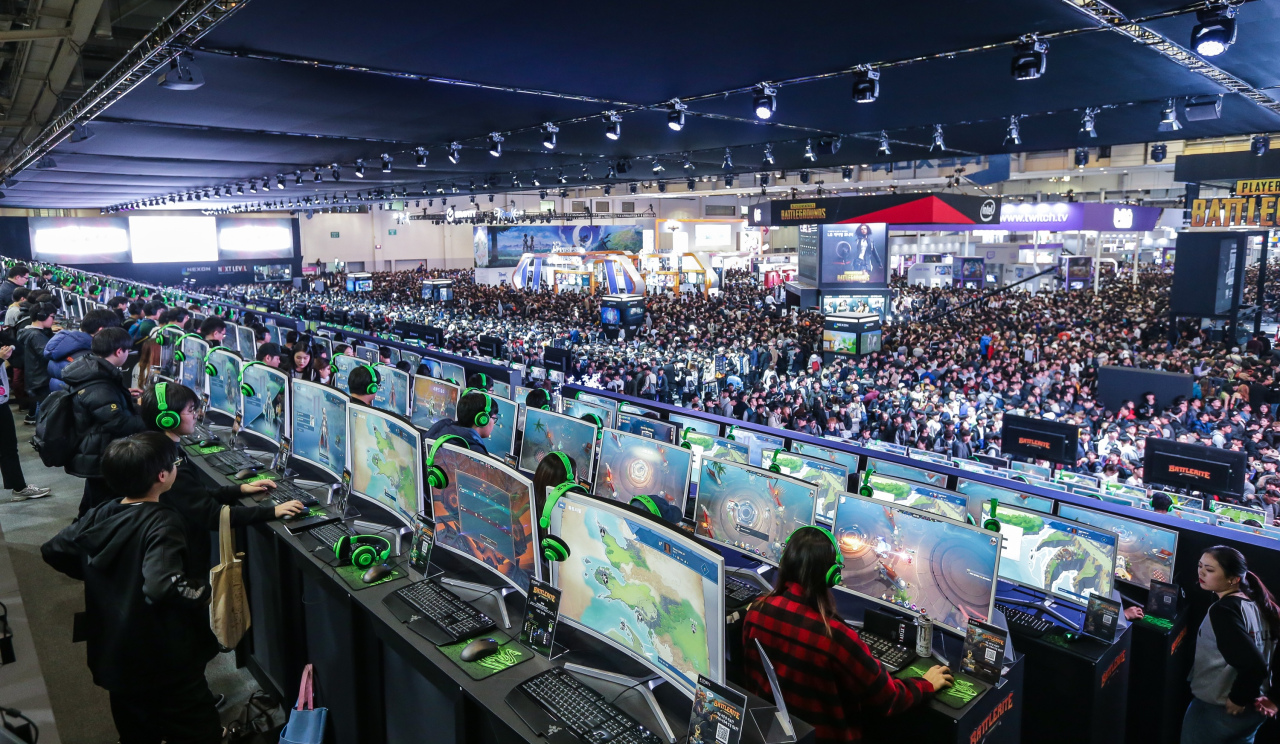South Korean companies are increasingly becoming key players of mergers and acquisitions in the global game industry, in pursuit of fresh revenue sources and growth engines, data showed on Thursday.
From 2013 to 2018, Korea ranked No. 4 in global M&A transactions in the industry, according to Samjong KPMG in its report titled “Global M&A Trends in Game Industry.”
 |
G-Star 2017 convention in Busan (Korea Association of Game Industry) |
Of the total 528 deals globally, Korean entities proposed, signed and closed a combined 45 deals, followed by the US (118), China (91) and Japan (56).
Also, Korean buyers were quick to make a mark in global markets. Korea was ranked No. 2 in terms of compound annual growth rate in gaming M&A transaction deals -- at 58.5 percent -- after Sweden’s 74.1 percent.
Moreover, Korean players’ clout in the industry was seen in megadeals. Two out of 20 largest game deals from 2013 to 2018 were cross-border transactions by Korean firms. These include DoubleU Games’ $826 million acquisition of US-based Double Down Interactive and Netmarble’s $710 million stake purchase of Canadian firm Kabam Games.
Korean gaming firms were also popular targets for M&As during the same period. A total of 36 firms were either acquired or in the process of being acquired, the fifth-largest following the US, China, Japan and the UK.
The report added that, of the transactions during the January-September period this year, Nexon’s purchase of newly issued 11.1 percent stake in Wonder Holdings for $293.7 million was the second-largest by volume, following Sohu’s $461.3 million stake purchase of Changyou in China.
The growing popularity of M&A activities in the game industry comes as intellectual property rights of small and midsized companies are increasingly under the spotlight.
Samjong KPMG cited a decline in the average volume of M&A transactions in 2017 and 2018 to less than $120 million, in contrast to $294.2 million in 2015 and $262.7 million in 2016, in part because megadeals were on the wane. It also showed that nearly half of targets during the six years were acquired by nongame companies, including internet firms, entertainment companies and investment firms like private equity houses and venture capitalists.
Korean gaming companies are no exceptions from the trend, wrote Samjong KPMG Director Lee Hyo-jung.
“Gaming giants with diverse product portfolios are looking to take over promising new players to capitalize on their production capacity, while those hinging on ‘one-hit wonders’ are facing a need to lower the risk by adding new games to their product lineup,” Lee wrote.
By Son Ji-hyoung (
consnow@heraldcorp.com)








